The international community finally moved toward sanctions against Libya
Adelina Marini, March 2, 2011
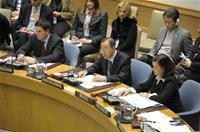 Only a day after President Barack Obama hardened his position on Libya and announced unilateral sanctions against the regime of colonel Muammar Gaddafi, the United National Security Council also moved forward toward endorsing a resolution with tough measures against the almost entirely isolated Libyan leader, firmly refusing to step down. After weeks of silence, the American president announced that the delayed actions were caused by his administration's desire firstly the evacuation of American citizens from Libya to end and then to move toward more effective actions against the regime. This happened on Friday (February 25th).
Only a day after President Barack Obama hardened his position on Libya and announced unilateral sanctions against the regime of colonel Muammar Gaddafi, the United National Security Council also moved forward toward endorsing a resolution with tough measures against the almost entirely isolated Libyan leader, firmly refusing to step down. After weeks of silence, the American president announced that the delayed actions were caused by his administration's desire firstly the evacuation of American citizens from Libya to end and then to move toward more effective actions against the regime. This happened on Friday (February 25th).
On Saturday the Security Council endorsed a resolution which not just condemns the situation in the north African country but even recommends the International Criminal Court to begin investigation of the events in the Libyan Arab Jamahiriya. The recommendations are based on fears that the systemic attacks against civilians "may amount to crimes against humanity". Resolution 1970 also calls the authorities in Libya to cooperate fully with the International Criminal Court Prosecutor, as well as to provide any necessary assistance to the Court and the Prosecutor.
In the same time, however, the document admits that the countries that are not members to the Rome Statute are not obliged to cooperate. Libya is not a member of the International Criminal Court, has not signed the Rome Statute but participates from time to time in meetings of the ICC.
Another important element of resolution 1970 of the Security Council is that it 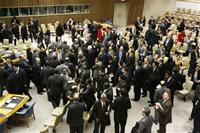 imposes assets freeze on colonel Gaddafi's family. A list is attached to the resolution with the names of all people whose assets should be frozen. A travel ban (again according to a list of names) and arms embargo are also imposed.
imposes assets freeze on colonel Gaddafi's family. A list is attached to the resolution with the names of all people whose assets should be frozen. A travel ban (again according to a list of names) and arms embargo are also imposed.
In the meantime a new sanctions committee is being established to deal with monitoring of the implementation of the measures in the resolution. Within 120 days from the endorsement of the resolution all member states have to report to the committee on the measures they have undertaken.
The United States' measures
On February 25th the White House press secretary Jay Carney announced that the State Department had suspended all operations of the American embassy in Libya and would temporary withdraw all employees from the embassy in Tripoli. This is happening only four years after the United States renewed its diplomatic relations with Libya. The administration also envisages undertaking unilateral measures which are still being considered. President Obama discussed the issue in telephone conversations with Turkish Premier Recep Tayyip Erdogan, with French President Nicolas Sarkozy, PM David Cameron of Britain and Italy's - Silvio Berlusconi.
Until the unilateral sanctions are approved, though, all assets have been frozen and the already insignificant military cooperation is also suspended.
The EU started implementing the travel ban
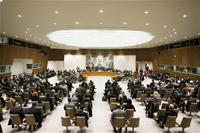 On behalf of the European Union, High Representative for Foreign Affairs Catherine Ashton announced that she fully supported resolution 1970 of the Security Council and announced that the Union had urgently started implementing restrictive measures like assets freeze, travel ban and arms embargo. The resolution was immediately approved by the EU.
On behalf of the European Union, High Representative for Foreign Affairs Catherine Ashton announced that she fully supported resolution 1970 of the Security Council and announced that the Union had urgently started implementing restrictive measures like assets freeze, travel ban and arms embargo. The resolution was immediately approved by the EU.
The Russian constraint position
The position of the Russian Federation still is restrained, although the country is a permanent member of UN Security Council and has signed resolution 1970 against Libya. Nonetheless, Russian Foreign Minister Sergei Lavrov did not mention in his speech in Geneva the word sanctions not even once. Instead, the Russian top diplomat said that the use of force against the civil population was unacceptable. "Russia condemns such violence, requires its immediate ending and calls for respect of international humanitarian law", Lavrov said quoted by the Novosti news agency.
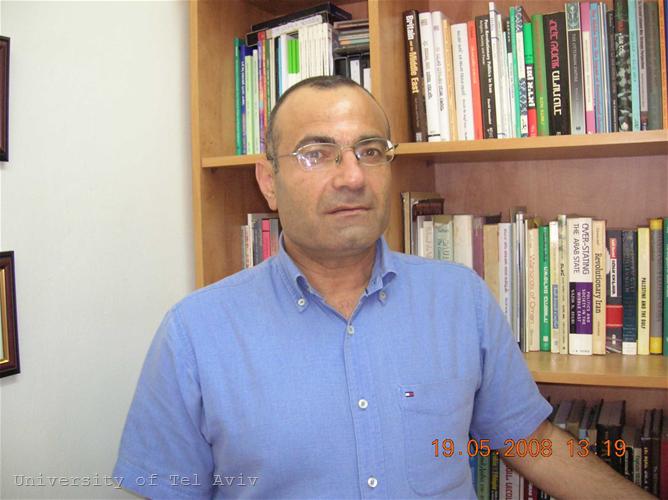 | © University of Tel Aviv
| © University of Tel Aviv | © Syrian Presidency
| © Syrian Presidency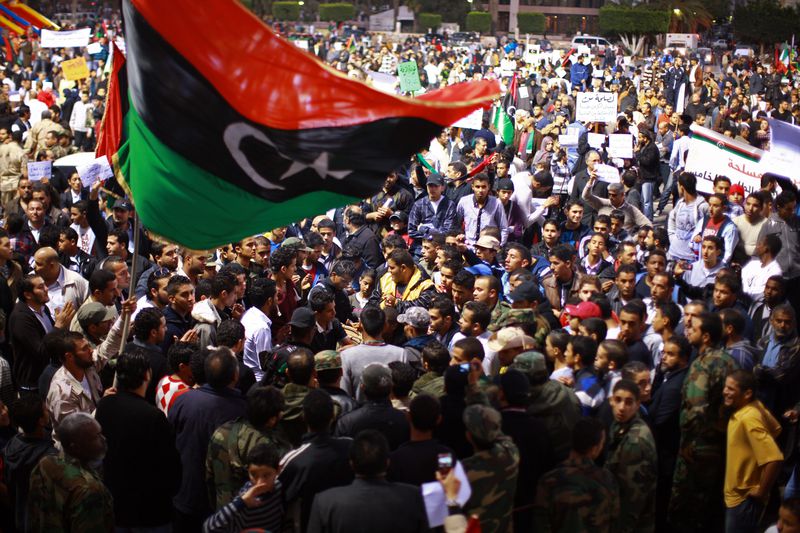 | © UN
| © UN